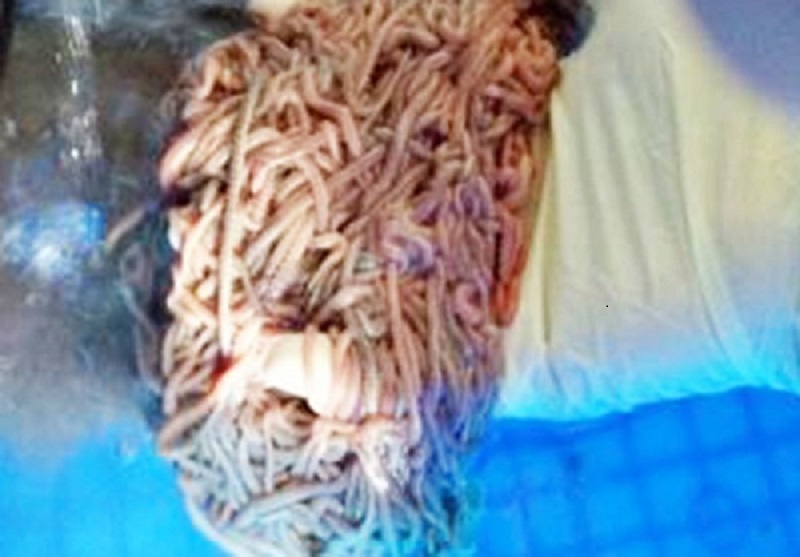Ca Mau: Testing polychaete farming as fresh food for the aquaculture industry
Polychaetes are annelids that live in marine and brackish water environments, capable of providing a source of protein and lipids to replace fishmeal and fish oil, very suitable as live feed for broodstock shrimp in broodstock farming, especially in shrimp hatcheries in the Mekong Delta, such as Kien Giang, Bac Lieu, and Ca Mau.

Experimental breeding of polychaete worms in a tarpaulin-lined tank. Photo: NNC
Currently, this type of worm is being overexploited in extensive shrimp farms and mangrove forests, especially in Ca Mau, leading to a decline in resources, negatively affecting biodiversity and the natural food chain of the area.
Faced with this situation, the Department of Science and Technology of Ca Mau collaborated with Can Tho University to conducte research on the current status of resources and developed a method for artificial biomass cultivation of the Dendronereis chipolini worm, a common species with high nutritional content in the region. The results showed that this species can reproduce and be raised in artificial conditions with a fertilization rate of over 86%, an average egg hatching rate of 72% after 12 hours, and a survival rate of over 47% after 45 days of rearing. The worm can be raised in a tarpaulin-lined tank, with a yield of 0.6 to 0.9 kg/m² after 4-5 months and grows well at a salinity of 20‰, bringing great potential to the aquaculture industry.
The research team recommends that there should be a reasonable management policy, such as not exploiting worms in September and October when they reproduce to protect natural resources, while maintaining the pond environment without changing water during this time. The project has been successfully completed and accepted, opening up a direction for sustainable development of natural food sources, contributing to protecting biodiversity and improving the efficiency of shrimp seed production in the area.